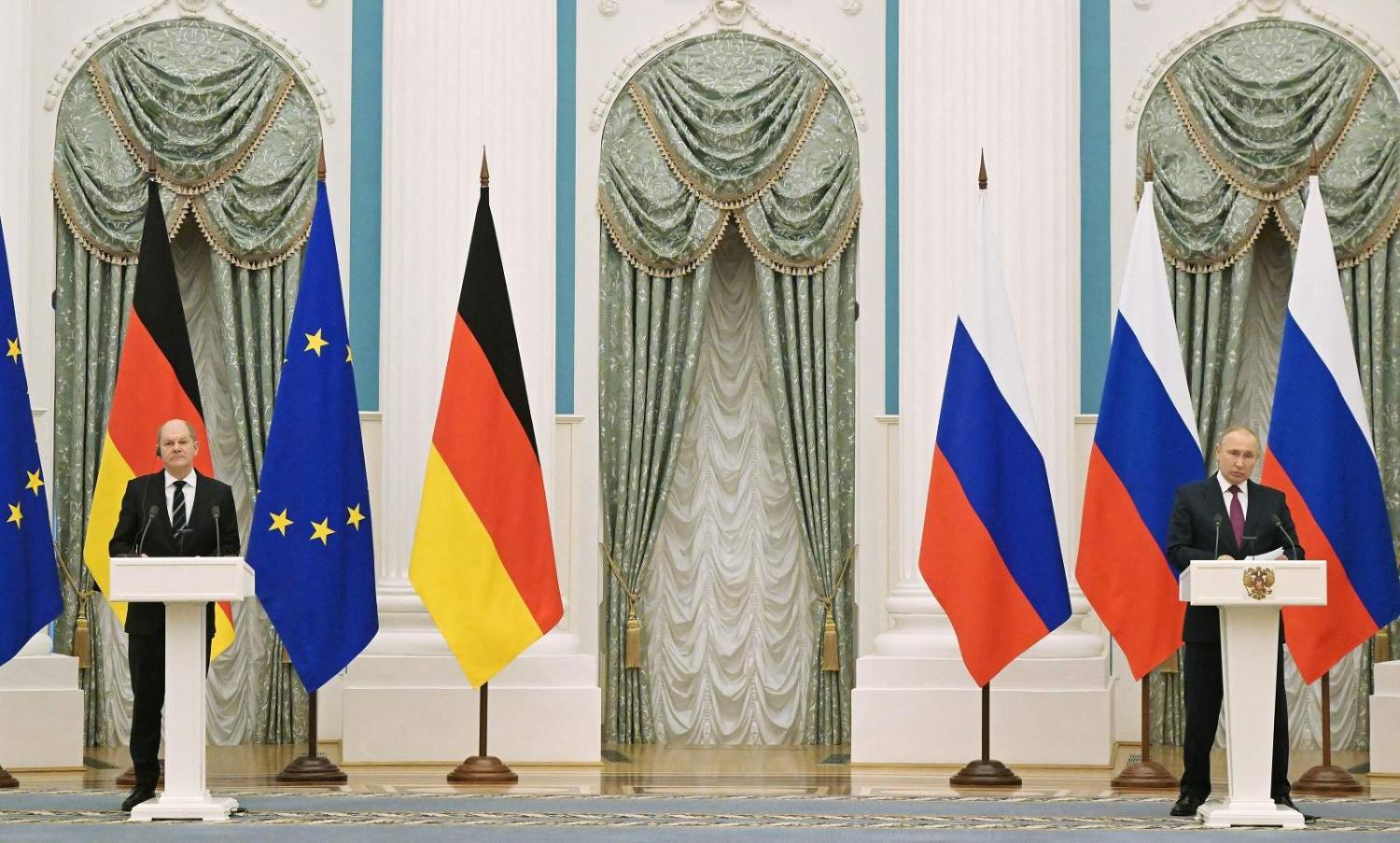If you want to see how Vladimir Putin’s aggression is reshaping the European mindset then Germany offers the best view.
It’s remarkable how far strategic thinking has shifted in Berlin in just two weeks. As recently as 15 February, German Chancellor Olaf Scholz was in Moscow pursuing dialogue with President Putin. Scholz concluded that diplomatic options were “far from exhausted” after Putin told him that he remained open to negotiation, and welcomed a bogus Russian announcement of troop withdrawals as a “good signal”. After assuring Putin that Ukrainian membership of NATO was “simply not on the agenda”, Scholz reportedly told European representatives that Russia would not go to war over the issue.
It was only a few days after Scholz returned to Berlin that the Germans realised they had been played.
By that point, the new German Chancellor had already been criticised heavily, at home and abroad, for his reluctance to contemplate tough measures against Moscow. Germany had been roundly derided in January for shipping nothing more than 5,000 helmets to Ukraine. Scholz’s public rhetoric, and his evident willingness to support a unified Western response, had firmed considerably by the time of his Moscow visit. But there was still a sense in the German approach that dialogue and wishful thinking were the only acceptable tools in dealing with Russia. The origins of this attitude can be traced back to when Germany was itself on the front line in the confrontation between Russia and the West.
It was only a few days after Scholz returned to Berlin that the Germans realised they had been played.

The transformation began on Monday 21 February – the day Putin recognised Ukraine’s Donbas region and announced the deployment of troops there. Germany responded the following day by suspending the Nord Stream 2 gas pipeline project, long championed by Scholz’s Social Democratic Party. Following intensive talks between the country’s coalition partners, Germany confirmed on Saturday that it would support disconnecting key Russian banks from the SWIFT global payment system – a central element of the Western sanctions regime.
Acceptance of these economic measures represented a serious step forward. But it is in the defence sector where the changes have been the most remarkable.
It was clear that a shift in defence policy was underway by Saturday, when Berlin finally agreed that Estonia could send artillery to Ukraine that once belonged to East Germany, and that the Netherlands could despatch German-made rocket-propelled grenades to Kyiv. But the big moment came the following day, when the Chancellor took the podium at a special session of the Bundestag and gave a speech that has been described in the German press as “discarding decades of post-Cold War foreign and security policy in half an hour”.
The Chancellor announced a special allocation of €100 billion to modernise the German military – described publicly by its chief last week as “more or less bare” after decades of under-investment. Scholz went further, announcing that the government would henceforth spend at least two per cent of the country’s GDP on defence. Germany has not allocated this much since 1991, the year the Soviet Union dissolved. Putin has thus achieved what Donald Trump failed to do. The former US President’s anger over Berlin’s low defence spending led him to announce cuts to the US troop presence in Germany – an ineffective ploy, which the Biden administration put on ice.
As the Green Foreign Minister Annalena Baerbock put it, “if our world is a different one, then our policy must also be different”.
It didn’t stop there. Scholz told the Bundestag that Germany would be despatching its own consignments of rocket-propelled grenades and stinger missiles directly to Ukraine – a repudiation of the country’s former strict policies on arms exports to conflict zones. He also announced an intention to strengthen German military deployments in eastern Europe, to modernise the aircraft used for its “nuclear sharing arrangements” with the United States, to work with France to build the next generation of fighters and tanks, and to purchase military drones.
Berlin has responded cautiously in recent decades to calls for it to make a stronger contribution to collective security. It has participated in peacekeeping missions in the Balkans and Afghanistan and increased its defence expenditure a little after Putin took Crimea in 2014. But Scholz’s speech on Sunday was a breakthrough moment for a country where aversion to conflict has deep historical and psychological roots dating back to the Nazi era. It is doubly remarkable because Scholz is a Social Democrat – the party that has been inspired for half a century by the Ostpolitik rapprochement strategy with Russia, initiated by SDP Chancellor Willy Brandt amid the Cold War
It’s worth noting that this is a centre-left coalition government that has finally bitten the bullet after decades of bipartisan malaise. While some might argue that this is only because it faces an undeniable reality in the east, it deserves credit for stepping forward in a way that its predecessor government, led by the centre-right Christian Democrats, did not. Even the Greens, the SDP’s most significant coalition partner, have been convinced by the circumstances to adjust their worldview. As the Green Foreign Minister Annalena Baerbock put it, “if our world is a different one, then our policy must also be different”. The fiscally cautious Free Democrats, the smallest coalition member, have also agreed to allow more debt to enable the defence upgrade. Former Christian Democrat Defence Minister Annegret Kramp-Karrenbauer was left lamenting on Twitter her government’s “historic failure” to do anything that would have stopped Putin following Russia’s earlier aggression in Georgia, the Crimea and Donbas.
It's a hard lesson for many in Europe. Nowhere is this more evident than in Germany.

